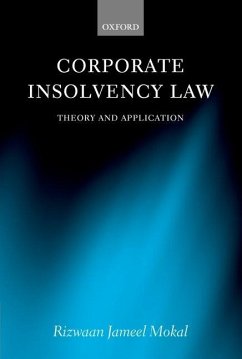The functional role of the floating charge and its relationship with receivership are also analysed in this context. The many questions relating to the operation of the new administration procedure introduced by the Enterprise Act 2002 are considered in the light of principle. The book also analyses the role of the wrongful trading provisions. It examines, finally, why insolvency law objects to certain transactions at an undervalue and those having a preferential effect. This volume aims to enhance understanding of this important branch of the law, and to suggest principled solutions to problems, which have not yet received judicial attention.
This volume constructs a detailed theory for the analysis and justification of corporate insolvency law using philosophical and economic tools. This theory is then deployed in an examination of the relevant statutes and leading authorities. The theory is also used to addresses important doctrinal questions which have not yet received judicial attention.
Hinweis: Dieser Artikel kann nur an eine deutsche Lieferadresse ausgeliefert werden.
This volume constructs a detailed theory for the analysis and justification of corporate insolvency law using philosophical and economic tools. This theory is then deployed in an examination of the relevant statutes and leading authorities. The theory is also used to addresses important doctrinal questions which have not yet received judicial attention.
Hinweis: Dieser Artikel kann nur an eine deutsche Lieferadresse ausgeliefert werden.








